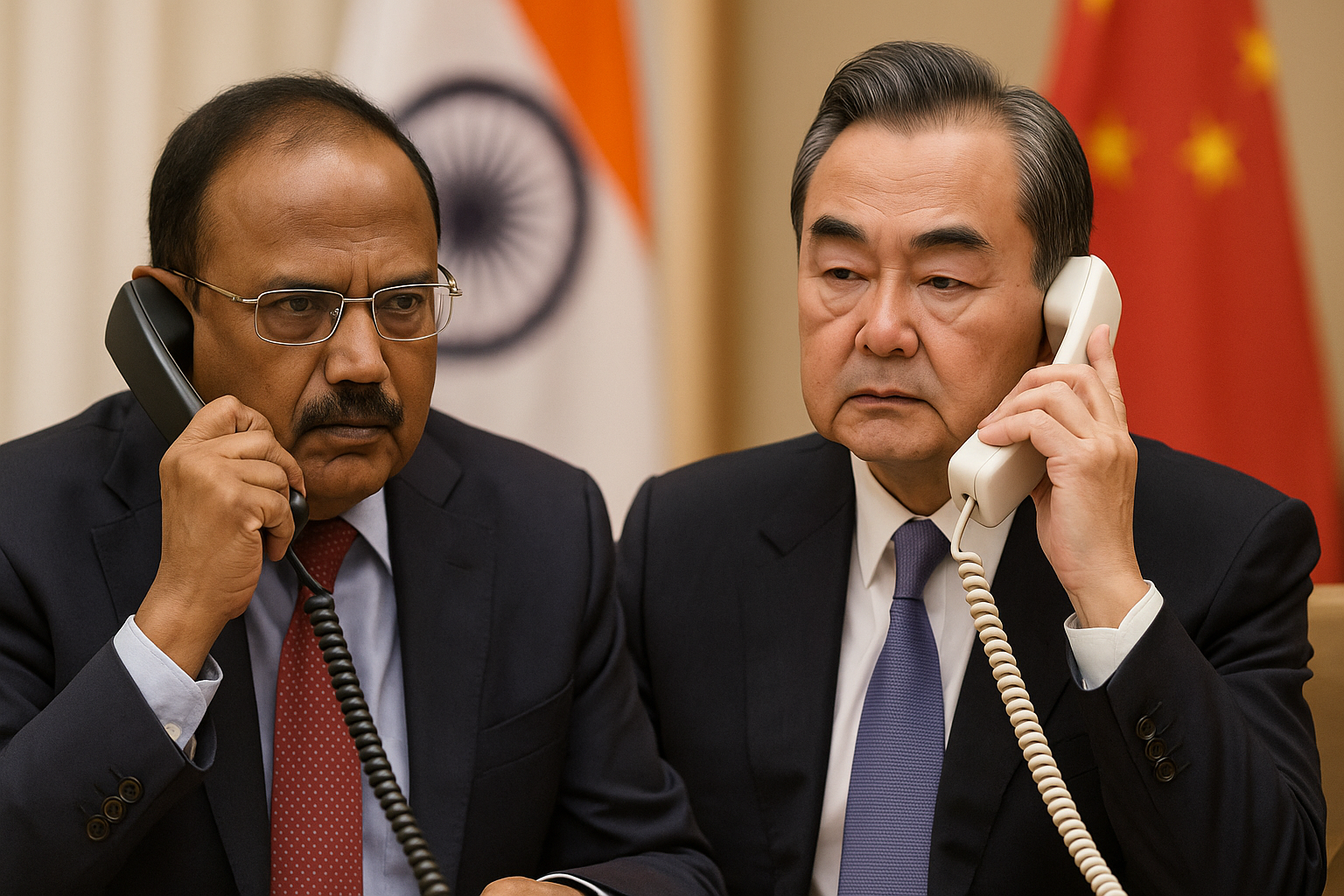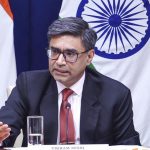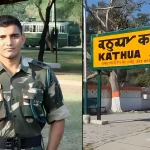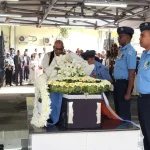In a pivotal diplomatic engagement, Indian National Security Advisor Ajit Doval held a phone conversation on Saturday with Chinese Foreign Minister Wang Yi to discuss the mounting tensions between India and Pakistan in the aftermath of the Pahalgam terrorist attack, which left 26 civilians—mostly Hindu tourists—dead in Jammu and Kashmir on April 22, 2025.
During the call, Doval emphasized the gravity of the Pahalgam massacre, which has deeply shaken the nation and prompted India to launch Operation Sindoor, a targeted military response against terrorist infrastructure in nine locations across Pakistan and Pakistan-administered Kashmir. While underlining India’s right to defend its citizens, Doval clarified that India does not seek war and remains committed to the ceasefire agreement along the Line of Control (LoC).
“Peace serves the interests of all parties,” Doval said, reaffirming India’s readiness to engage in counter-terror operations while striving for regional stability. He called for a collective international stance against terrorism, especially in South Asia.
Chinese Foreign Minister Wang Yi, also a senior member of the Communist Party’s Political Bureau, condemned the Pahalgam attack and voiced China’s unwavering opposition to terrorism in all forms. He acknowledged the precarious state of peace in the region and urged both India and Pakistan to exercise restraint and resolve their disputes through dialogue.
“The current global landscape makes it all the more important for regional powers to maintain peace,” Wang noted. He reaffirmed China’s support for a negotiated, lasting ceasefire, aligning with the aspirations of the broader international community.
This high-level conversation came just hours after Pakistan reportedly violated the renewed ceasefire agreement, triggering strong condemnation from Indian Foreign Secretary Vikram Misri. The ceasefire, re-established through DGMO-level talks, was shattered as Pakistan launched retaliatory strikes following India’s Operation Sindoor, reportedly causing civilian casualties on both sides of the LoC.
The escalating military actions, including drone warfare and artillery shelling, have alarmed world powers. The United Arab Emirates, Iran, the United States, and the United Nations have called for immediate de-escalation. Iran has even offered to mediate peace talks, while UN Secretary-General António Guterres issued a stark warning about the potentially catastrophic consequences of a direct conflict between the nuclear-armed neighbors.
Meanwhile, Indian security agencies have linked the Pahalgam attack to Pakistan-based terrorist leaders. Lashkar-e-Taiba chief Hafeez Saeed, his deputy Saifullah Kasuri, and a third operative, Hashim Moosa—believed to be hiding in south Kashmir—have been named as key planners. The Jammu and Kashmir Police have issued a ₹2,000,000 reward for actionable intelligence leading to their capture or elimination.
As backchannel diplomacy intensifies, the region remains on edge. The conversation between India and China signals a cautious but constructive move toward defusing tensions. However, with emotions running high and both sides suffering casualties, the road to de-escalation remains fraught.













